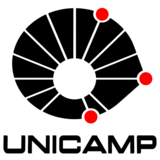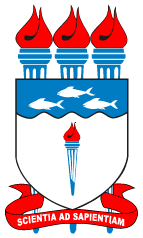Project Partners
 Centre for Informatics and Systems of the University of Coimbra (Project Coordinator) |
The Systems and Software Engineering (SSE) Group is located at the Centre for Informatics and Systems of the University of Coimbra (CISUC). CISUC is part of the Faculty of Science and Technology of the University of Coimbra (UC), which is a prestigious European Research Higher Education Institution. With around 20000 students, UC is one of the largest Universities in Portugal. The Systems and Software Engineering Group (formerly named Dependable Systems Group) has been active since 1989, and includes 12 professors and 20 Ph.D. students. |
 Department of Mathematics and Informatics University of Florence |
The Università degli Studi di Firenze (UNIFI) is a University with approximately 25.000 students, and research activities in several domains, from engineering to human sciences, natural sciences, architectures, medicine and computer science. The Resilient Computing Lab (RCL) research group at the Dept. of “Matematica e Informatica” (Mathematics and Informatics) has his main research focus in research and experimentation of dependable architectures and systems. The group is currently involved in research spanning two macro areas: (1) Architectures and Techniques for Fault-Tolerant Systems, Infrastructures and Networks, and (2) Validation of systems dependability, Trust and QoS through analytical, simulative and experimental techniques. Members of the group have been involved in many cooperative projects from Framework 2 to Framework 7. Currently the group is involved in several cooperative projects both at National and European level, including TENACE ("Protecting National Critical Infrastructures From Cyber Threats", progetto PRIN n. 20103P34XC - http://www.dis.uniroma1.it/~tenace/) and CONCERTO ("Guaranteed Component Assembly with Round Trip Analysis for Energy Efficient High-integrity Multi-core Systems", ARTEMIS-JU-333053 - http://www.concerto-project.org/), and is currently coordinating the FP7 European project AMADEOS ("Architecture for Multi-criticality Agile Dependable Evolutionary Open System-of-Systems ", ICT-FP7-610535 - http://www.amadeos-project.eu/). |
 IC - Institute of Computing & FT - School of Technology State University of Campinas |
Founded in 1966, the University of Campinas - UNICAMP - is a leading Brazilian public university that has attained international recognition for excellence through its innovative approach to higher education. Unicamp, with aproximately 34.000 students, has three campuses - in Campinas, Piracicaba and Limeira - which are home to 22 teaching and research centers. It also has a vast hospital complex; 23 interdisciplinary centers; two technical high schools and a series of support units within a universe of about 50 thousand people in which thousands of research projects are carried out. The Institute of Computing - IC, was the first academic institution in Brazil to offer a bachelor's degree in Computer Science. The graduate program was started in 1977 and has earned a reputation for providing exceptional higher education. The program is consistently ranked as one of Brazil’s top institutions in providing high-level research, and Master and PhD degrees that carry prestige and professional recognition. Evidence of these facts are over 50 thesis awards, many of which ranked first in the yearly competition promoted by the Brazilian Computer Society (SBC). |
 IC - Institute of Computing Federal University of Alagoas |
Founded in 1961, the Federal University of Alagoas (UFAL) is a federal institution of higher education based in the capital Maceió and has two campi within the Alagoas State: Campus Arapiraca and Campus Sertão (Hinterland). There are about 26,000 students enrolled in 113 classroom courses, distributed in 22 Academic Units (Maceió) and campi Arapiraca and Sertão. Regarding graduate courses, there are 39 stricto sensu programs (30 master's and nine doctoral degree courses), which have 2,312 students, plus 13 lato sensu courses. Since 2006, Ufal is a partner of the "Universidade Aberta do Brasil" (Open University of Brazil), which today contributes offering about six undergraduate distance courses, totaling about 4,000 students, plus three lato sensu distance courses. The Institute of Computing (IC) is the academic unit of UFAL responsible for the development of teaching, research and social research in the areas of Computing and Statistics. The IC performs the training of human resources through its three regular undergraduate courses, two classroom courses: in Computer Science and Computer Engineering, and a distance course in Information Systems. The institute also has two Master degree programs, one in Computer Science and other interdisciplinary, in which computing is used as a means to solve problems in other areas: MSc in Computational Modeling Knowledge. |
 |
This project has received funding from the European Union's Seventh Framework Programme for research, technological development and demonstration under grant agreement no PIRSES-GA-2013-612569. |


